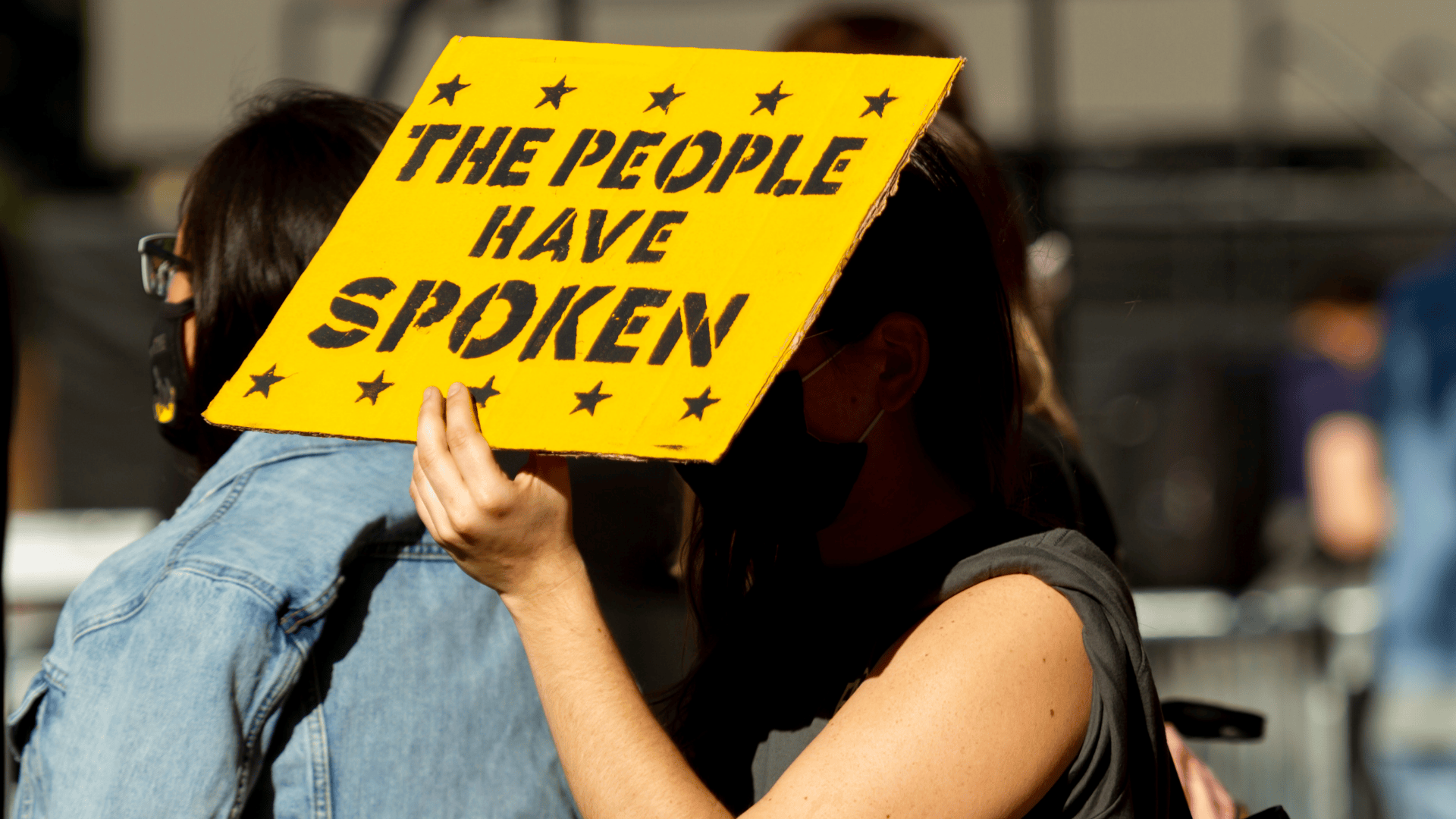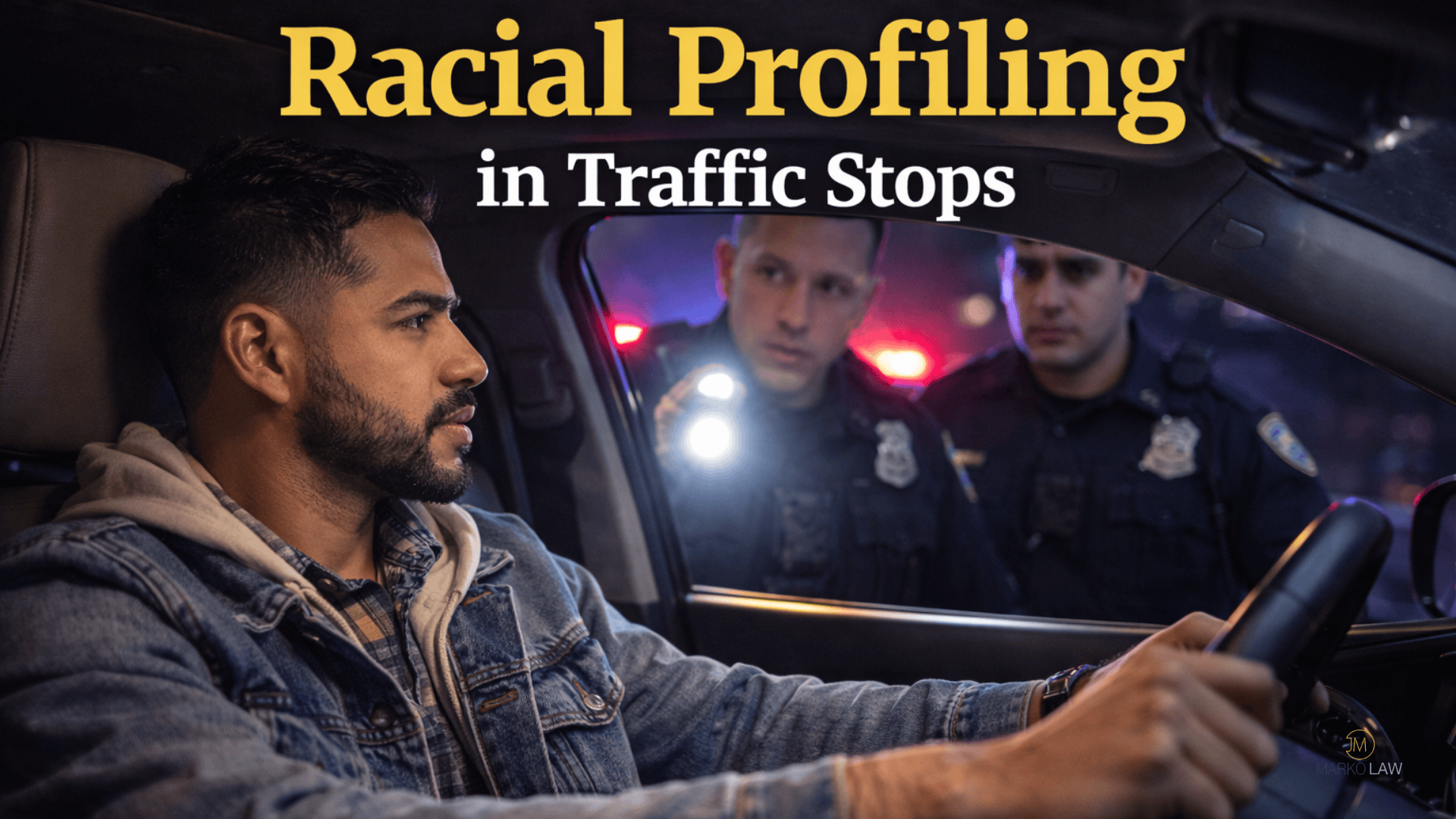Protesting isn’t just a right—it’s a cornerstone of democracy. From Flint water protests to marches for police reform in Detroit, Michigan citizens have used their voices to push for justice, equality, and accountability. And they should.
But the reality is this: exercising your rights in public doesn’t always mean you’ll be treated fairly. Whether it’s an aggressive police response, an unlawful arrest, or being told to “move along” when you’re standing on a public sidewalk, the legal terrain can shift quickly. If you don’t know your rights, you may not realize when they’re being violated—until it’s too late.
Government entities can place restrictions on time, place, and manner—so long as they don’t target your message. That means you can protest in public places, but blocking traffic without a permit, trespassing on private property, or ignoring curfews can still get you arrested.
In short: your protest is legal until it crosses into an area the law doesn’t protect.
That’s why being informed isn’t just smart—it’s self-defense.
Your Constitutional Right to Protest
The First Amendment of the U.S. Constitution doesn’t mince words: you have the right to speak, assemble, and demand change. This protection applies in every state—including Michigan—and is especially critical in times of political tension, racial injustice, or government overreach.
What the First Amendment Guarantees
The First Amendment protects:
- Freedom of speech – Say what you believe without government censorship.
- Peaceful assembly – Gather in groups for protests, marches, or rallies.
- Petitioning the government – Demand accountability or policy change.
Whether you're calling for justice after a police shooting or protesting unfair housing policies in Detroit, your right to be there—and be heard—is enshrined in law.
What Types of Protest Are Protected?
The law protects peaceful, non-violent protest activities such as:
- Marches and rallies in public spaces
- Holding signs or chanting slogans
- Sit-ins or demonstrations on public grounds
- Distributing flyers, speaking into megaphones, or livestreaming
These actions are protected—even if they’re unpopular, controversial, or critical of the government.
What Are the Legal Limits?
The government can impose limits, but only under strict conditions. These are known as time, place, and manner restrictions. They must be:
- Content-neutral – Authorities can’t regulate based on what you’re saying.
- Narrowly tailored – Restrictions must serve a legitimate public interest (like traffic safety).
- Leave open alternatives – You must still have a reasonable way to get your message out.
For example: Requiring a permit for a large march through downtown Detroit is legal. Shutting down a protest because of its message is not.
Do I Need a Permit to Protest in Michigan?
The short answer? Sometimes.
While the First Amendment gives you the right to protest, cities and municipalities can require permits in certain situations to protect public safety and ensure events are orderly. But they can’t use permits to silence your message.
When You Do Need a Permit
You generally need a permit if your protest will:
- Block streets, sidewalks, or intersections
- Use amplified sound (like microphones or bullhorns)
- Involve large crowds in public parks or plazas
- Erect structures (like tents or stages)
- Need police presence or traffic control
For example, organizing a 500-person march down Woodward Avenue in Detroit? You’ll need a permit. But the city can’t deny it because they disagree with your message—that would be unconstitutional.
When You Don’t Need a Permit
Your protest is typically protected without a permit when:
- You’re on public sidewalks and not obstructing pedestrian traffic
- You’re holding signs or chanting without amplification
- You’re engaging in spontaneous protests in response to breaking news
- You’re picketing alone or in a small group
So, if you're holding a sign outside city hall or peacefully walking through downtown with friends—you’re likely within your rights without a permit.
Watch for Local Ordinances
Each Michigan city may have its own permit rules. For example:
- Detroit may require parade permits for street marches
- Ann Arbor might limit noise after certain hours
- Grand Rapids may regulate the size of gatherings in public spaces
Check city websites or call the local clerk’s office before planning anything big. A surprise citation can shut down your protest—and possibly lead to arrest.
Where You Can Legally Protest in Michigan
Public Spaces Are Your Safest Ground
You have the strongest legal protections when protesting in public spaces, including:
- Sidewalks
- Parks
- Government buildings' plazas or steps (outside only)
These areas are considered traditional public forums, and your right to protest there is heavily protected—as long as you don’t block access, disrupt traffic, or break local ordinances.
Private Property? Get Permission First
Once you step onto private property, the rules change.
- Protesting in a mall, grocery store parking lot, or business lobby? You need the owner’s permission.
- Without consent, you could face trespassing charges, even if your protest is peaceful.
That includes apartment complexes, churches, and even nursing homes. Your message might be valid—but the location matters.
What About Schools and Campuses?
Public universities like University of Michigan or Michigan State generally allow protests on campus—but with restrictions:
- No disruption of classes or exams
- No occupation of admin buildings
- Some areas may be limited to “free speech zones”
High schools are more regulated. Students still have First Amendment rights, but schools can impose rules to avoid disruption.
Bottom line: you can protest on campus—but know the rules, or risk being removed.
Curfews and “Free Speech Zones”
Some cities impose curfews during civil unrest or require protestors to remain in designated “free speech zones.” These are legal—but controversial.
- They must be content-neutral and leave room for effective communication.
- If used to suppress certain views, they may be unconstitutional.
If you’re told to move to a “designated protest area,” record the interaction and ask for clarification. That video could be vital if your rights are violated.
What Police Can—and Can’t—Do During a Protest
What Police Can Do
Police officers have legal authority to:
- Enforce time, place, and manner restrictions
- Keep roads clear unless your group has a parade or street permit
- Issue lawful orders if safety is at risk
- Arrest for crimes like trespassing, disorderly conduct, or assault
Their job is public safety—not message control.
What Police Cannot Do
Use Force to Break Up a Peaceful Protest
If you’re not threatening anyone or breaking laws, police have no right to disperse your protest with force. Tear gas, rubber bullets, or batons can constitute excessive force—and may be grounds for a civil rights lawsuit.
Arrest You Just for Holding a Sign or Speaking Out
The content of your protest—no matter how controversial—is protected. You cannot be arrested solely for speech, unless it incites violence or breaks the law in some other way.
Confiscate Your Phone or Camera Without a Warrant
You have the right to record police in public, including during protests. Officers cannot:
- Demand to see your photos or videos
- Force you to delete footage
- Take your device without a court-issued warrant
Recording Police During Protests
Yes, You Can Legally Record Police in Public
In Michigan, you are allowed to record police officers performing their duties in public—as long as:
- You don’t interfere with what they’re doing
- You’re in a public space like a sidewalk, park, or protest area
That means you can film:
- Arrests
- Crowd control tactics
- Use of force
- Any interactions you have with officers
This right is protected by the First Amendment and backed by court rulings across the country.
What to Do If You’re Stopped or Detained
- Stay calm and respectful.
- Ask: “Am I free to leave?” If yes, walk away. If no, you’re being detained.
- Invoke your rights clearly:
- “I do not consent to a search.”
- “I want to remain silent.”
- “I want to speak to a lawyer.”
Know the Law. Use Your Voice.
Protesting is one of the most powerful ways to speak truth to power—and your right to do it is protected by the Constitution.
But here’s the reality: knowing your rights is the strongest protection you have. Whether you’re leading a march, holding a sign, or recording from the crowd, being legally informed can mean the difference between making your voice heard—or being silenced.
And if that line is crossed—if you’re arrested without cause, brutalized by police, or silenced because of your message—you’re not alone.
At Marko Law, we fight for protestors. For voices shut down. For rights trampled. For accountability where the system fails.
Call to Action: Contact Marko Law for a Free Case Evaluation
📞 Phone: 1-833-MARKO-LAW or +1 313-777-7777 📍 Office: 220 W. Congress, 4th Floor, Detroit, MI 48226
🌐 Website: www.markolaw.com
📲 Follow us: Instagram, Facebook, LinkedIn









.svg)








